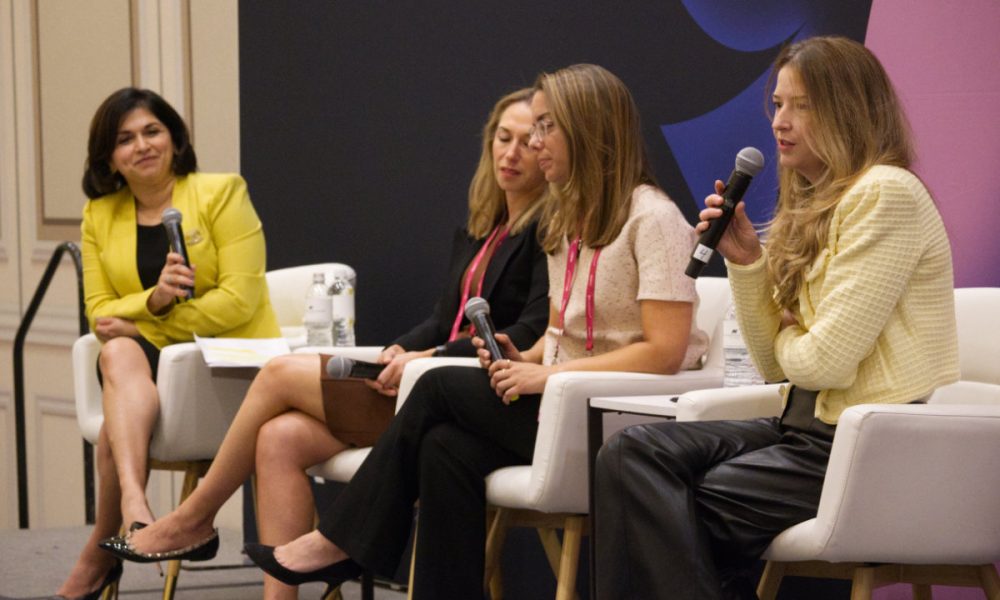
Among the things that Global Credit Advisors Managing Director Kenzie Shaw looks for when approving a loan is the ability to pay back the debt and interest. Innovators need to have a sound business plan. Other elements that Shaw looks at are metrics, leverage, and cash flow.
Shaw, of course, also needs to believe in a plan. But the human element, being able to trust that someone seeking capital has a reasonable outlook for their innovation, is also very important.
“I need to trust the people asking for the money and I need to believe that they have a realistic chance of success,” said Shaw during the Global Gaming Expo education session “From Ideas to Impact: Women Entrepreneurs and Investors Pioneering Innovation” at the Venetian Expo in Las Vegas. “A lot of people are unrealistic and to me, the people who have a fluid outlook about what their business can look like are much more compelling.”
When panelist Anna Sainsbury co-founded the geolocation company GeoComply 13 years ago, she and her business partner had to overcome numerous obstacles. There were times when she was broke, times when the concept of geolocation seemed inscrutable to investors.
“It was an incredible challenge and it felt like doors were slamming in your face all the time,” Sainsbury said. “Everybody’s telling you not to do it and the only problems that are really worth following are ones that other people haven’t solved and that’s probably for good reason. It’s going to be uncomfortable. So being uncomfortable with something that we got good at kind of ended up being our secret sauce —pushing in areas of compliance where there’s so much red tape that a normal person would give up.”
Anna Massion, the Non-Executive Director for Playtech, AGS, Game Realms, and Games Global, said all of the boards look at the growth potential and whether it’s organic or inorganic, when it comes the acquisition of another company. “It needs to have a fit in our portfolio. If we’re going for an asset, there needs to be a reason why we think why we can run it better than it’s being run independently.
“Oftentimes for small companies, they simply don’t have the capital, where it’s too expensive, so the private loan market is a great example. Oftentimes, these companies are borrowing at upwards of 20 percent or more in terms of interest. They have to give away equity as well, so you’d rather have a strategic investor, like a public company maybe giving you a loan. They have certain products that we feel like we can plug into our sales force and really grow and expose it to a much larger customer base.”
One thing that Sainsbury thinks is important when starting out is personal responsibility. When things go wrong, when a plan doesn’t pan out, when it seems that there’s little hope, it’s useless to blame others.
“I’m the one that’s going to hear about it,” Sainsbury said. “I’m the one that’s going to work with the team to turn it around right and that’s just kind of the full accountability I think we need to have. A bunch of people in the organization, as well as at management-team level, could do that. But to me, as a founder, you’re really the only one that’s going to be there for the longest period of time to get it done right. You’re there from the initial idea until it gets done.”









